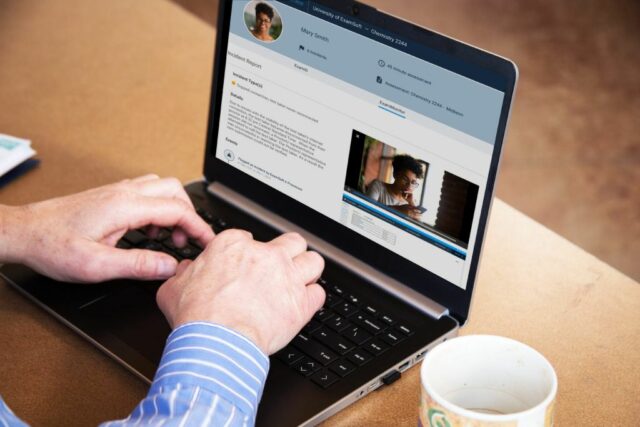
Costa Rican Universities have the legal right to require their students to turn “on” video and audio during virtual testing. This was decided by the Constitutional Chamber of the Supreme Court, due to the allegation of a student from the University of Costa Rica (UCR) against that measure.
The appeal was presented by the student José Fernando Garro, who is in the first year of the Comprehensive Water Resource Management Career at the UCR. He assured that his house did not have private areas in which he felt “comfortable to show it in a university environment” and that his fundamental rights were being violated by demanding that he show his image, his voice, and his family space.
Faced with this allegation, the constitutional court assured in its resolution No. 2020021429 that it is not within its competence to determine how costa rican university students should be evaluated, as this is the responsibility of the educational center and the teaching staff. Likewise, it pointed out that the appellant failed to show that he had claimed any inconvenience to his teacher or that he had asked that the regulations not be applied to him for any reason, nor that he always has to take the tests in that modality or that he is required to perform them from his home.
Final ruling
For these reasons, the Chamber wrote in its judgment that “the appellant did not identify a specific situation, in that order of ideas, the appeal must be dismissed, as it follows that the UCR through administrative resolution No. VD-11502 regulated the academic and administrative guidelines for teaching with a virtual component, in which they reasonably took into account the rights to intimacy, privacy and respect for the fundamental rights of students”, dictates the document.
Attention to specific cases
Finally, the Chamber pointed out that although there are regulations on the processing of synchronous tests online, any inconvenience could be addressed “casuistically”. That is to say, it considers that it is possible for students and teachers to reach agreements among themselves, in case it warrants it. “So much so that the issuer of the guideline itself, is the Vice-rector’s Office for Teaching, as stated in the report that is submitted to this Chamber.”
Academic response
In her response to the student’s allegation, the Vice-Chancellor for Teaching of the UCR, Susan Francis, assured that the verification of the identity of each student is essential in the distance educational process, which has now taken on a preponderant value in the face of the novel Coronavirus Pandemic.
“Verification of the student’s identity is not only a legal requirement of enrollment control, risk policies, allocation of socioeconomic benefits (scholarships, transportation, food, accommodation, exemption from tuition fees, among others), evaluation of academic performance, but is an element of coexistence and transparent performance of the educational activity “.
“In this sense, the matter is not only inspired by legal, administrative, and academic aspects, but it transcends the ethical sphere for the proper use of technological tools within university teaching.”
“Regarding the eventual violation of privacy and domicile, because the enabling of audio and video could expose the conditions in which the student has at that precise moment, it is important to point out that the ZOOM platform with an institutional license allows that the participants enable a “wallpaper or image background” (…) Now, as is logical, when these mechanisms are insufficient, are not suitable or there are specific situations, the student must inform directly and personally to the teacher in charge, who is obliged to take the necessary measures to avoid exposure or to improve conditions”, the official wrote.

